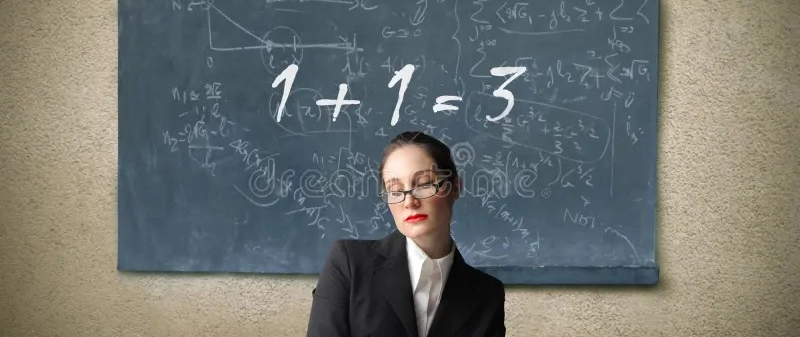Education is a Scam
The modern education system is a troubling paradox that raises serious questions about its true value and purpose. Why the current state of higher education resembles more of a business scheme than a path to knowledge and growth.
First, there's the fundamental disconnect between education and employment. While employers demand degrees for positions, the reality is that much of the required knowledge can be freely accessed online. Students are forced to acquire unrelated, old knowledge while also must seek additional knowledge outside their formal education to stay relevant, at least somewhat competitive, and without personal projects and initiative, their degree alone holds little value.
The certification process itself is questionable. Graduation exams, meant to validate years of study, are often superficial and easy to pass. If these exams truly measured competency, why not allow anyone to take them and prove their knowledge? The answer is simple - it would expose a big lie.
Do governments offer certification beyond institutional education? No - they have no interest in doing so. It's easier to spread the myth that formal education is the only path to success for young people than to develop a legitimate certification system.
What we're witnessing is, as John Uebersax accurately describes, "a racket". The system operates like a well-oiled machine where accredited institutions maintain a monopoly on education credentials. These institutions, protected by their exclusive status, can charge whatever they want while lobbying for policies that benefit them at the expense of students.
The solution? Employers should have the freedom to hire based on actual skills and potential rather than credentials. Let them decide themselves, employers know better what kind of people they need (in terms of skills), why governments don't just provide a good service to HELP them find such people easier rather putting a spoke in their wheels. The current practice of preferring degree holders isn't about quality; it's about legal convenience, despite the fact that these graduates still need extensive on-the-job training.
This educational cartel, legitimized by government policies, represents a significant obstacle to genuine learning and professional development. It's time to question whether this system truly serves its intended purpose or merely perpetuates an expensive, self-serving cycle that benefits institutions at the expense of students' futures.
The modern world is built on knowledge and technologies that are more accessible than ever through the internet.
Related good articles I found:
Unmotivated employees
This system perpetuates a toxic cycle where genuine talent and dedication are overshadowed by bureaucratic requirements. The irony is palpable - while companies claim to seek the best talent, they often overlook highly skilled individuals due to credential requirements that have little correlation with actual ability. This creates an environment where artificial barriers prevent both employers and potential employees from forming mutually beneficial relationships based on merit rather than paperwork.
And what’s making it even worse is the prevalence of unmotivated employees who obtained their positions purely through credentials rather than passion or skill. These individuals often went through formal education simply because it was expected, not because they had genuine interest in their field. This creates a workforce where many are just going through the motions, lacking the drive and enthusiasm that comes from true professional calling and self-directed learning.
For me, programming started as pure passion - I spent years coding simply because I loved it, long before considering it as a career path. Will you still choose this career if your income will drop 3 times? - I will.
How I’m nothing with years of experience
Despite having years of professional experience and demonstrable skills, I find myself in a frustrating position where my capabilities are often overlooked simply because I lack formal credentials. The system places more value on a piece of paper than on practical knowledge and proven ability. This paradox perfectly illustrates how the current educational paradigm fails to recognize real-world competency.
I'm a software developer who taught myself and put significant effort into acquiring skills. I continue learning every day with even more dedication. This highlights what formal education fails to provide - continuous learning. They show no interest in graduates after completion and offer no guidance on self-education.
As an employer you can study my GitHub profile, which is something every developer nowadays have, you can find my project and easily judge about me. Sadly, this is something I would expect to happen which is not happening. I make public some commercial projects I worked on, which failed or have no value anymore. I’m working on side-projects. I’m working on my own projects, which usually testing my ideas by creating websites, games and libraries. Hard skills. My soft skills are not left behind, I’m writing blog posts, documentations, I work on my speech and voice, I present things I’m working on to clients and team mates. I embrace code as an art-science. I learn project management and such since my desired position is Web Frontend Engineer Tech-lead. I have strong skills at designing too since I want to be a superman knowing every aspect of the subject deeply.
I’m proving myself at everything I mentioned to my colleagues and my employer. Do you think it’s cool? Maybe. Do you think a single government in the world cares about it? No. Even right now I don’t have a legal status in a company I’m working in.














Hi, I understand your frustration, and I have to say I used to believe in some of what you say (like that education doesn't work), but I changed my mind... Like - it works, but not in the way you may think.
On the plus side though - I think you might be on the right track. I do technical interviews, and I'm a decision maker on who gets hired and who doesn't...
Sooo, will it help you if I write a somewhat longer comment on how I do it? What I look for and so on?